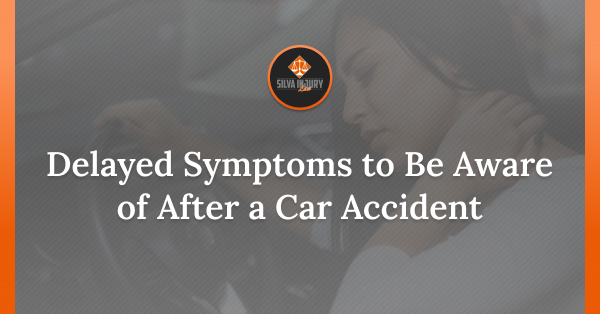
After a car crash, it’s normal to focus on obvious visual injuries. However, you should keep an eye out for trouble that might show up days or weeks later.
Many delayed symptoms after a car accident might seem minor, but they can indicate hidden problems that need attention.
By watching for these issues, you can get medical help as soon as possible. And once a doctor diagnoses your injuries, you have the right to seek compensation from the liable party.
Silva Injury Law can help you get justice after a car accident. We are a leading law firm in California that staunchly advocates for victims. Contact our office online or call (209) 600-4389 today to discuss your case and learn about potential compensation.
1. Headaches
Headaches are common yet often overlooked symptoms after a car accident. Ignoring them can lead to serious complications and fatal consequences.
Injuries that cause headaches can include:
- Concussion. Headaches following a car accident could be a sign of a concussion, especially if accompanied by other symptoms like dizziness or confusion.
- Traumatic brain injury (TBI). Severe headaches may be a symptom of a traumatic brain injury, necessitating immediate medical attention.
- Muscle tension. The stress and strain of the accident can cause muscle tension in the neck and shoulders, resulting in tension headaches.
- Blood clot. In rare cases, headaches could indicate a blood clot in the brain, requiring urgent medical intervention.
It’s best to seek treatment for these headaches, even if you can manage them with over-the-counter medicine.
2. Memory Problems
Some people struggle to think clearly or remember key aspects of their day. These symptoms are one of the worst warning signs after a car accident because they can indicate brain damage.
Memory issues may also indicate conditions like:
- Concussion. Memory difficulties can be a concussion symptom, particularly if accompanied by other cognitive impairments such as confusion or difficulty concentrating.
- TBI. Severe memory problems may suggest a traumatic brain injury, necessitating immediate medical evaluation.
- Post-Traumatic Stress Disorder (PTSD). Emotional trauma resulting from the accident can lead to memory problems as part of PTSD symptoms.
- Stress and anxiety. The stress and anxiety surrounding the accident can also impact memory function, leading to difficulties in recalling events or information.
Schedule a doctor’s appointment as soon as you notice any memory issues.
3. Fainting and Dizziness
Losing consciousness can be a frightening experience. What’s worse, these car accident symptoms can cause you to fall and sustain more injuries.
If you feel faint or dizzy, ask your doctor about these conditions:
- Orthostatic hypotension. Sudden drops in blood pressure can happen when standing up, leading to dizziness or fainting.
- Inner ear injuries. Trauma from the accident can cause damage to the inner ear, resulting in vertigo or dizziness.
- Concussion. Head injuries sustained during the accident may lead to dizziness or fainting spells as part of concussion symptoms.
- Anxiety or panic attacks. Emotional distress following the accident can trigger anxiety or panic attacks, accompanied by dizziness or faintness.
Additionally, don’t drive or operate machinery until you see a doctor since this can lead to further injury.
4. Neck and Back Pain
The sudden jolt of a crash can leave you feeling sore and stiff, especially in the neck. This is a sensitive area, and damage here can affect many aspects of your health.
Neck and back pain are often indications of:
- Whiplash. The abrupt and forceful motion of the neck during an accident can trigger whiplash, resulting in delayed-onset neck and shoulder discomfort.
- Herniated disc. Accident trauma may cause a herniated disc in the cervical spine, leading to neck and back pain that radiates.
- Nerve compression. Injury-related nerve compression in the cervical spine can induce delayed neck and back pain, accompanied by numbness or tingling sensations.
- Soft tissue injuries. Damage to ligaments, tendons, or other soft tissues in the neck and back area may cause delayed pain and inflammation.
It’s best to seek medical help as soon as the pain begins, especially if it’s accompanied by any other symptoms.
5. Abdominal Pain or Swelling
Your abdomen holds vital organs and sensitive tissue. Damage to this area can often go unnoticed, leading to severe consequences.
Health issues that cause stomach pain and swelling include:
- Internal organ injury. The force of impact during a car accident can cause trauma to internal organs such as the liver, spleen, or kidneys, leading to delayed abdominal pain or swelling.
- Internal bleeding. Damage to blood vessels or organs can result in internal bleeding, which may not immediately present symptoms but can lead to abdominal pain or swelling as it progresses.
- Peritonitis. Inflammation of the peritoneum, the lining of the abdominal cavity, can result from injury or infection, leading to delayed abdominal pain or swelling.
- Organ rupture. The force of impact can cause organs to rupture, resulting in delayed abdominal pain or swelling as the condition worsens.
Because these conditions can be life-threatening, it’s best to go to the emergency room as soon as you notice pain.
6. Tingling or Numbness
Feeling strange sensations in your arms, hands, and legs is one of the most delayed symptoms after a car accident. They can occur at any time, but often happen when sitting or standing in a specific position.
Typical causes of sensations like tingling or numbness can include:
- Nerve compression. Compression of nerves in the neck, back, or extremities due to injury can lead to delayed tingling or numbness in the affected areas.
- Soft tissue damage. Trauma to muscles, ligaments, or tendons can cause inflammation or swelling, resulting in nerve compression and delayed tingling or numbness.
- Spinal cord injury. Damage to the spinal cord can lead to delayed neurological symptoms such as tingling or numbness in the extremities, indicating potential spinal cord trauma.
- Vascular issues. Damage to blood vessels or impaired circulation due to injury can result in delayed tingling or numbness in the affected extremities.
While these symptoms may resolve with time, it’s best to speak with a doctor to rule out serious injuries.
7. Difficult Hearing or Ringing in Your Ears
Car crashes are very loud, especially when airbags deploy and glass shatters. Many people don’t notice hearing problems until they sit in a quiet room or lie in bed.
Here are some causes of delayed difficult hearing or ringing in your ears:
- Acoustic trauma. Exposure to loud noises during the accident can lead to delayed ringing or tinnitus.
- Ear injuries. Issues like barotrauma from changes in air pressure during the accident can result in delayed difficulty hearing or ringing in the ears.
- Inner ear damage. Damage to the inner ear structures due to head trauma during the accident can result in delayed hearing loss or tinnitus.
Ringing and hearing loss may only last for a few hours after the crash. But if you notice these post-car accident symptoms happening days after the incident, you should schedule a doctor’s appointment.
Schedule a Free Consultation
Knowing what to expect physically after a car accident is only the first step towards getting justice. You also need a fierce car accident lawyer by your side who can hold the other side accountable.
Silva Injury Law has decades of experience advocating for injured Californians and has recovered many favorable settlements and millions of dollars for its clients.
Reach us online or call (209) 600-4389 today to schedule a no-cost consultation to discuss your case.

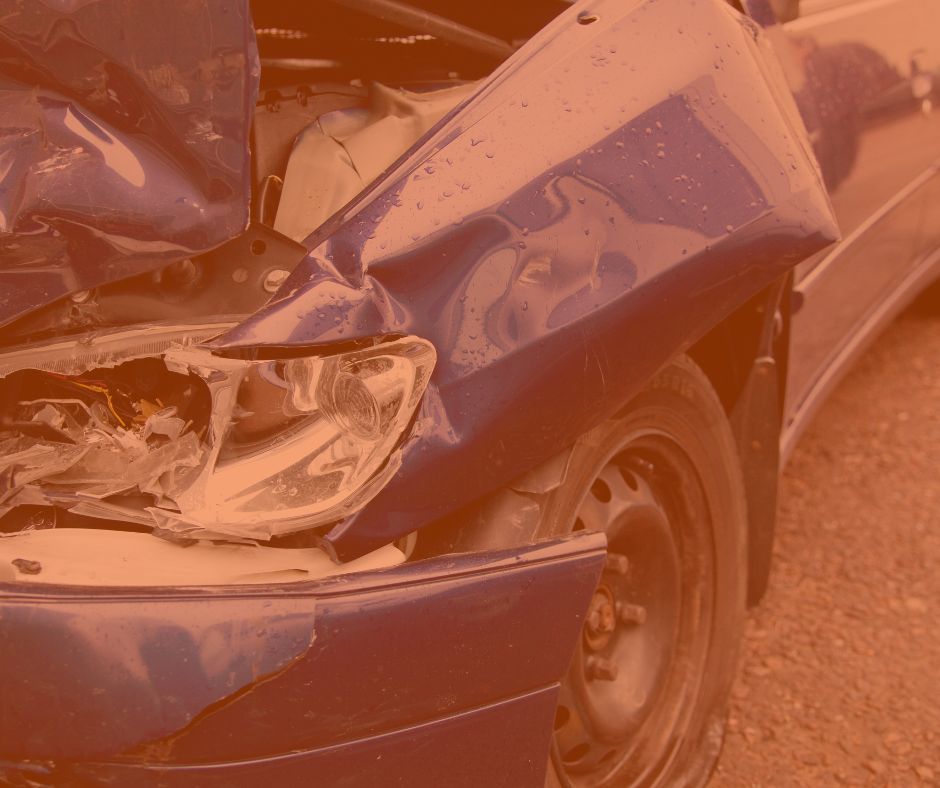





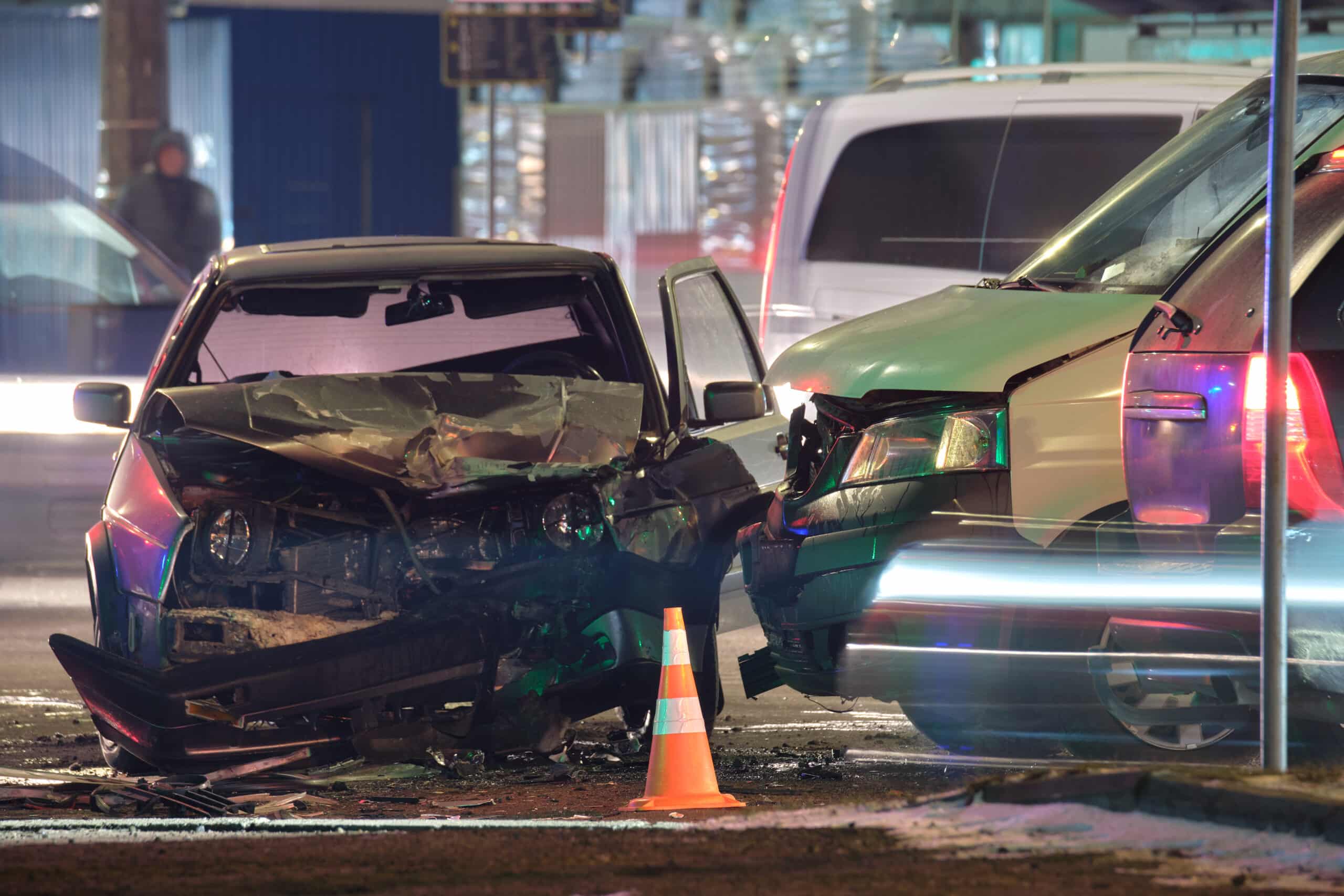

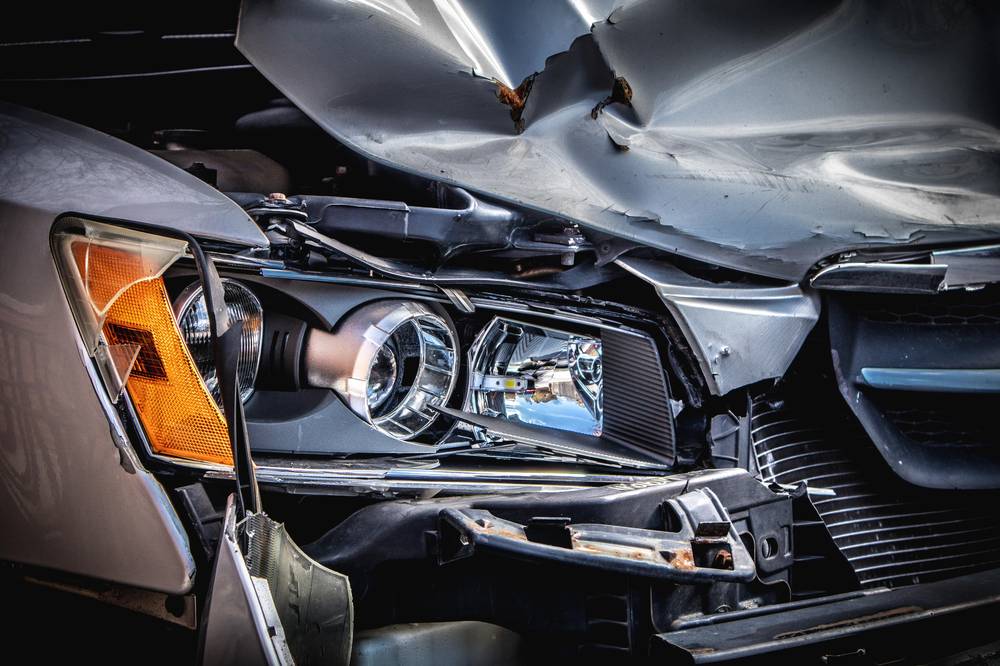
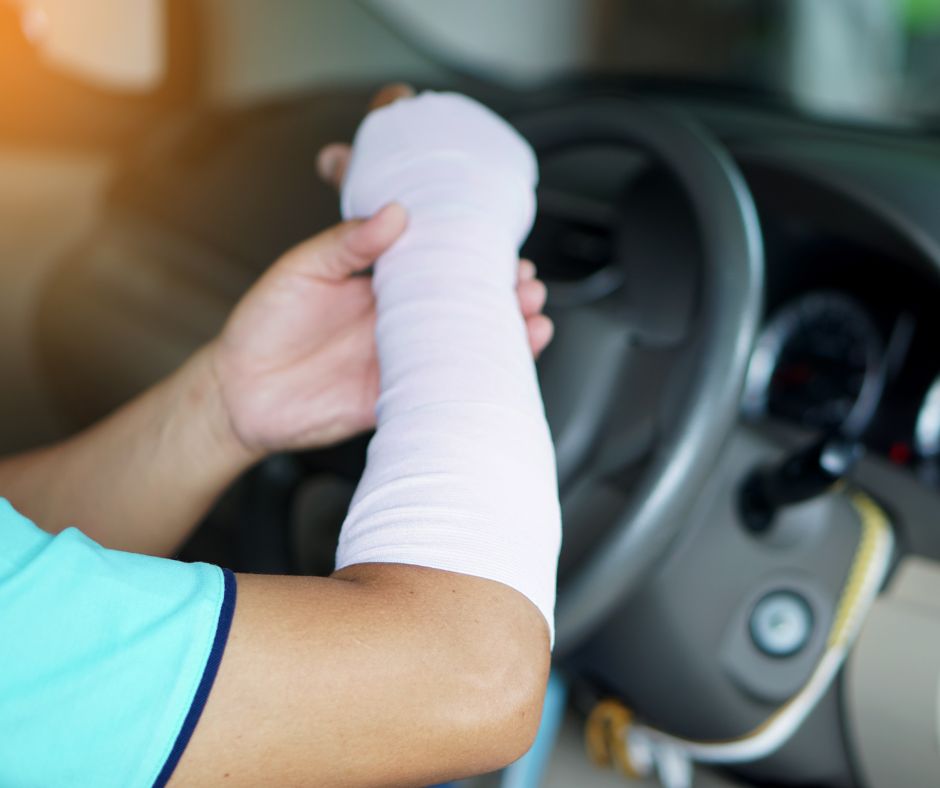
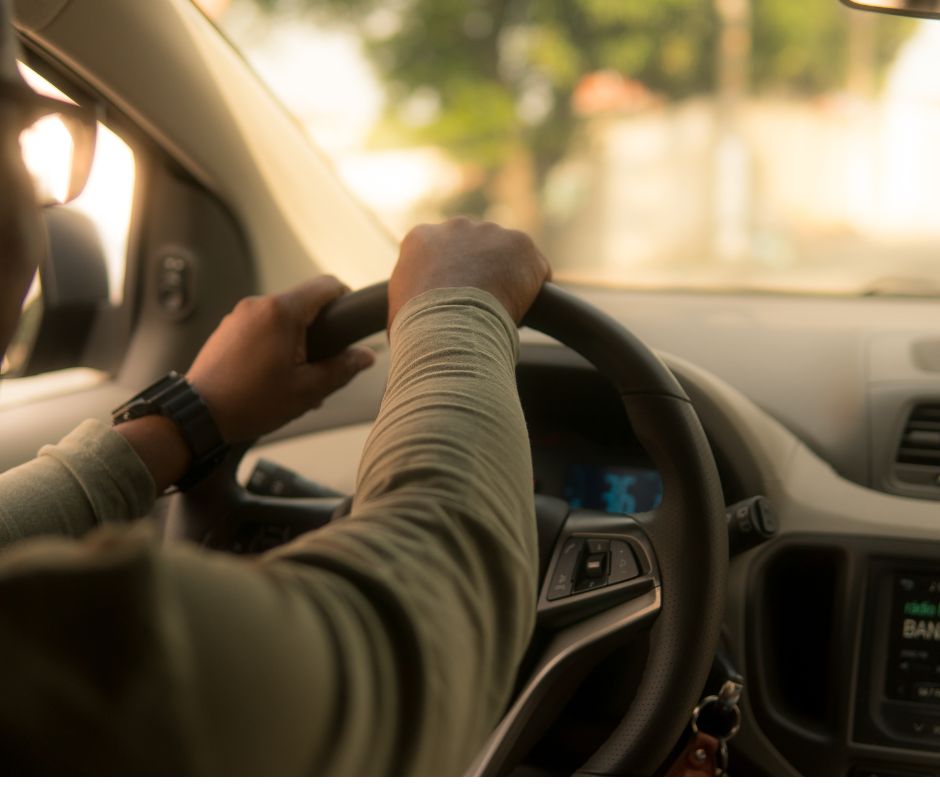

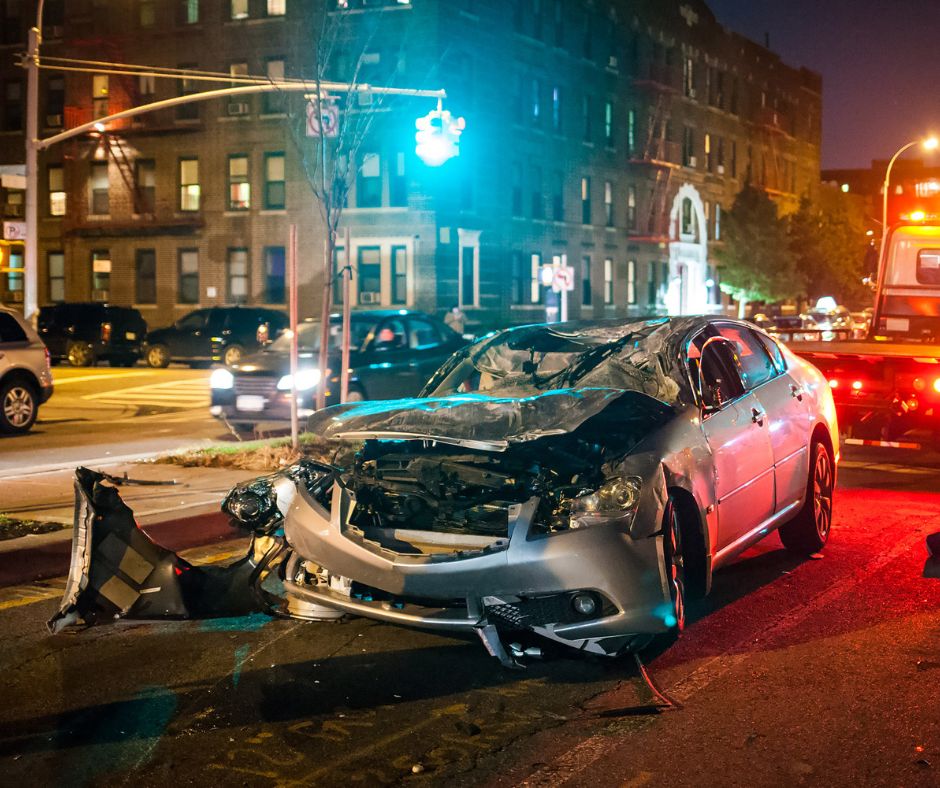




 EMAIL
EMAIL  Ask AI
Ask AI  Access
Access